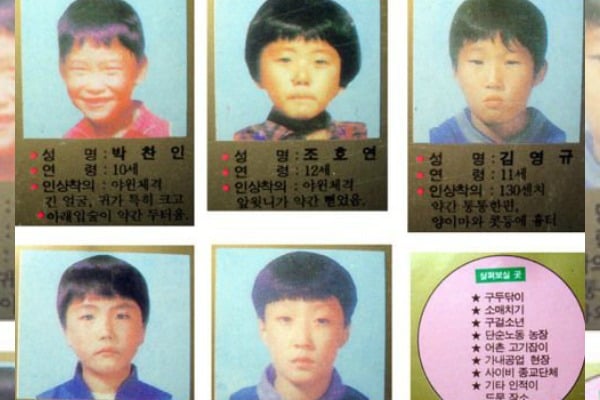
On March 26, 1991, five young boys set off for a day of fun together, catching frogs in the streams of Mount Wayong, South Korea as their country celebrated a public holiday.
But by the time the sun set, U Cheol-won, 13, Jo Ho-yeon, 12, Kim Yeong-gyu, 11, Park Chan-in, 10, and Kim Jong-sik, nine, had failed to return home.
Worried, their parents began searching for them. But after hours of looking, they found no trace and reported the missing boys to the police.
According to the Korea JoongAng Daily, South Korea’s president at the time, President Roh Tae-woo undertook a massive search, dispatching a police force of 300,000 and operating a special investigation centre to look for the boys. They searched reservoirs, irrigation waterways, bus terminals and stations nationwide.
Schools, companies and civic groups made donations totalling 42 million won ($35,000) as a reward to those who found the boys, the publication reported.
But none of these efforts were successful and the boys remained missing.
There seemed to be no clues. Rumours abounded about the disappearance. Some speculated that they had been kidnapped by a “mentally ill person”, as reported by Korea JoongAng Daily.
On September 26, 2002, 11 years after their disappearance, all five of the boys’ bodies were discovered by two men on Mount Waryong, only two kilometres from their homes.
Initially, the police said that they had found no indications of homicide and that the most likely explanation is that the children froze to death.
According to Korea JoongAng Daily, the bodies were entwined, suggesting they’d tried to overcome the cold by huddling together.
But after the forensic medicine team from Kyungpook National University examined the bodies, they determined that their deaths were in fact the result of foul play.
